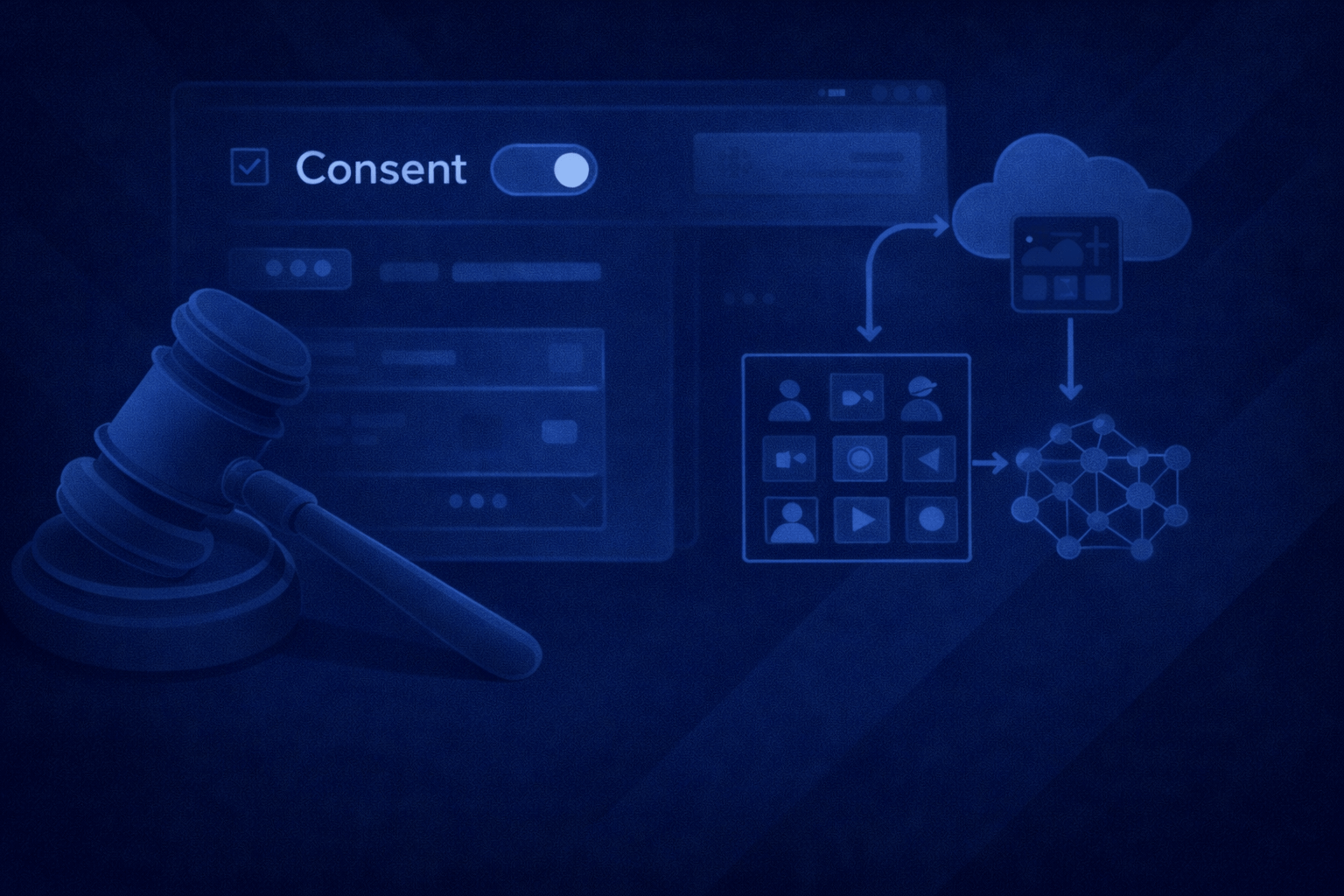The Bulk Sensitive Data Rule has altered the map dramatically since April 8, 2025. The Department of Justice named this far-reaching regulation the "Data Security Program" (DSP). It places strict limits on bulk data transactions with China (including Hong Kong and Macau), Cuba, Iran, North Korea, Russia, and Venezuela. Companies face unprecedented legal risks when they transfer Americans' personal data across borders.
The DOJ offered a three-month grace period until July 8, 2025, to organizations that showed good-faith compliance efforts, and with good reason too. This transition period has now ended. Full enforcement brings substantial penalties for violations.
The DOJ can pursue civil enforcement actions with fines up to $368,136 (or twice the value of each violating transaction). Criminal prosecutions for willful violations could lead to 20 years imprisonment and $1,000,000 fines.
Businesses handling sensitive personal information face high stakes. This piece explains how this rule turns routine privacy matters into national security concerns. We'll get into high-risk data practices that could trigger litigation and explore recent case law that shapes enforcement priorities. Our analysis gives a full picture of litigation risks across industry sectors, especially when you have foreign data transfers to Countries of Concern.
How the BSD Rule Transforms Data Privacy into National Security
The Bulk Sensitive Data (BSD) Rule transforms our understanding of data transfers. It takes them beyond typical privacy issues and places them squarely in the realm of national security threats. This change gives federal authorities unprecedented power over how businesses handle Americans' personal information.
From Consumer Protection to Foreign Threat Mitigation
The Data Security Program (DSP) works as a national security directive, which is nowhere near traditional privacy regulations that focus on individual rights. The DOJ created this framework "to prevent China, Russia, Iran, and other foreign adversaries from using commercial activities to access and exploit Americans' sensitive personal data to commit espionage". This change reflects what the DOJ calls an "unusual and extraordinary threat to the national security and foreign policy of the United States".
The rule brings in ideas you'd typically find in sanctions and export control systems rather than consumer protection rules. The DSP creates what amounts to export controls on sensitive data. This matches a larger pattern where national security now takes priority over economic factors.
DOJ's Framing of Foreign Data Transfers as Espionage Risk
The DOJ clearly shows how foreign data access creates multiple threats. The Final Rule explains that countries of concern can participate in malicious cyber-enabled activities and malign foreign influence activities and "track and build profiles on U.S. persons... for illicit purposes such as blackmail, coercion, and espionage".
The DOJ also emphasizes how artificial intelligence makes these risks worse. Countries of concern are increasingly using bulk sensitive personal data to develop and boost artificial intelligence capabilities that enable "increasingly sophisticated and effective" exploitation of datasets.
One notable example shows how AI can cross-reference multiple datasets to find government employees "whose links to the federal government would be otherwise obscured in a single dataset and who can then be targeted for espionage or blackmail".
The rule also tackles issues about foreign exploitation of genomic data "to enhance military capabilities that include facilitating the development of bioweapons". This moves data privacy beyond consumer rights and into national defense territory.
High-Risk Practices Triggering Litigation
Data practices create exceptional legal risks under the Bulk Sensitive Data Rule. Cases now blend traditional privacy claims with national security concerns.
Real-Time Bidding (RTB) and Foreign Bidder Access
RTB auctions expose Americans' personal information to foreign entities that might exploit it. Websites and apps broadcast sensitive data in millisecond-long auctions. They send location, device details, browsing history, and unique identifiers to thousands of advertisers at once. These "bid requests" contain personal details that anyone can link to actual people.
The FTC's Mobilewalla case shows this risk clearly. The company gathered data on over a billion people, and RTB auctions gave them about 60% of it. Foreign surveillance companies have exploited this weakness. Rayzone pretended to be an advertiser to get bidstream data and then sold tracking tools to governments worldwide.
Cookie Syncing and Identifier Sharing with Chinese Entities
Cookie syncing with Chinese entities creates high legal risks. China lacks specific laws about cookies or similar tech. Chinese law lets the state access any EU RTB data that Chinese companies collect.
Google sends European RTB data to many Chinese companies. The 2021 Data Security Law of the People's Republic of China lets the Chinese state access this information. Russian companies get RTB data too, and Russian security services can access any data collected in Russia.
Tracking Pixels and SDKs in Mobile Apps
Mobile apps with tracking tech face major lawsuits. The DOJ states that tracking pixels or software development kits in mobile apps that access bulk U.S. sensitive personal data count as data brokerage.
Onward Data Sales to Foreign Analytics Partners
Data transfers downstream create big liability risks. The Rule says U.S. persons must stop bulk U.S. sensitive data transfers to countries of concern and covered persons. Companies must tell DOJ within 14 days if they know or suspect violations of transfer rules.
Companies need supplier assessment programs to check if SDK providers get proper user consent for data collection and transfers.
Litigation Trends and Case Law Developments
Legal battles now show how BSD Rule violations create tangible challenges in courts. These cases blend privacy claims with national security issues and shape a new legal environment.
Baker v. Index Exchange: RTB as Unlawful Interception
Baker's lawsuit claims Index Exchange unlawfully intercepted users' online communications and sent sensitive data to Temu, a Chinese-owned e-commerce platform. The complaint presents real-time bidding as an illegal wiretap under the Electronic Communications Privacy Act. Index Exchange deliberately intercepted consumer communications to share data against the BSD Rule.
Porcuna v. Xandr: Cookie Syncing and Temu Data Flows
Microsoft's subsidiary Xandr faces allegations of enabling Temu's "covert" data collection through cookie syncing. The lawsuit explains how cookie synchronization lets Temu match its internal user IDs with third-party identifiers to build detailed profiles without user consent.
State AG Actions Against Temu, CapCut, and Alibaba
State attorneys general have taken strong action against Chinese-owned apps. Texas AG Ken Paxton has challenged TP-Link, Alibaba, and CapCut for violating Texans' privacy rights. Kentucky, Nebraska, and Arkansas have filed lawsuits against Temu separately. They claim Temu uses spyware to gather sensitive personal data.
Legal Foundations of the Bulk Sensitive Data Rule
Executive Order 14117 came into effect on February 28, 2024. The order created a legal framework for the BSD Rule and labeled unrestricted bulk data transfers to foreign adversaries as an "unusual and extraordinary threat" to national security. The International Emergency Economic Powers Act (IEEPA) provided the foundation for this order, which built upon security measures from Executive Order 13873 (2019).
Executive Order 14117 and National Security Justification
The Department of Justice received direct instructions to create binding regulations. These regulations would prevent foreign adversaries from accessing and exploiting Americans' sensitive personal data. The security initiative has managed to keep bipartisan support and continued unchanged through presidential transitions.
28 C.F.R. Part 202: Scope and Effective Dates
28 C.F.R. Part 202 regulations became active on April 8, 2025. The implementation followed a gradual approach. Affirmative due diligence requirements and specific reporting obligations started on October 6, 2025. The rule creates complete prohibitions and security requirements that apply to permitted transactions.
Definition of Covered Persons and Countries of Concern
The regulations identify six nations as Countries of Concern: China (including Hong Kong and Macau), Cuba, Iran, North Korea, Russia, and Venezuela. Covered persons include entities with 50% or more ownership by a country of concern. These entities must operate under their laws or conduct most operations within their territories. This classification also applies to foreign employees, contractors, and residents of these nations.
Conclusion
The Bulk Sensitive Data Rule has shifted routine data privacy issues into the realm of national security. By drawing bright lines around bulk transfers and designating countries of concern, it has created new liability risks for companies in ad tech, consumer apps, data brokerage, genomics, and financial services.
Enforcement is only beginning. The DOJ’s forthcoming Covered Persons List, combined with state attorney general activity and private class actions, ensures that litigation will continue to expand in both scope and theory. Courts will now be asked to reconcile traditional privacy claims with arguments that data transfers pose national security threats.
For attorneys on both sides, the takeaway is clear. Companies need to map their data flows, scrutinize vendor and ad-tech integrations, and prepare to defend or challenge novel claims that blend privacy law with national security frameworks.
The next year will determine how aggressively these rules are enforced and how far plaintiffs can stretch the theories now entering the courts.





